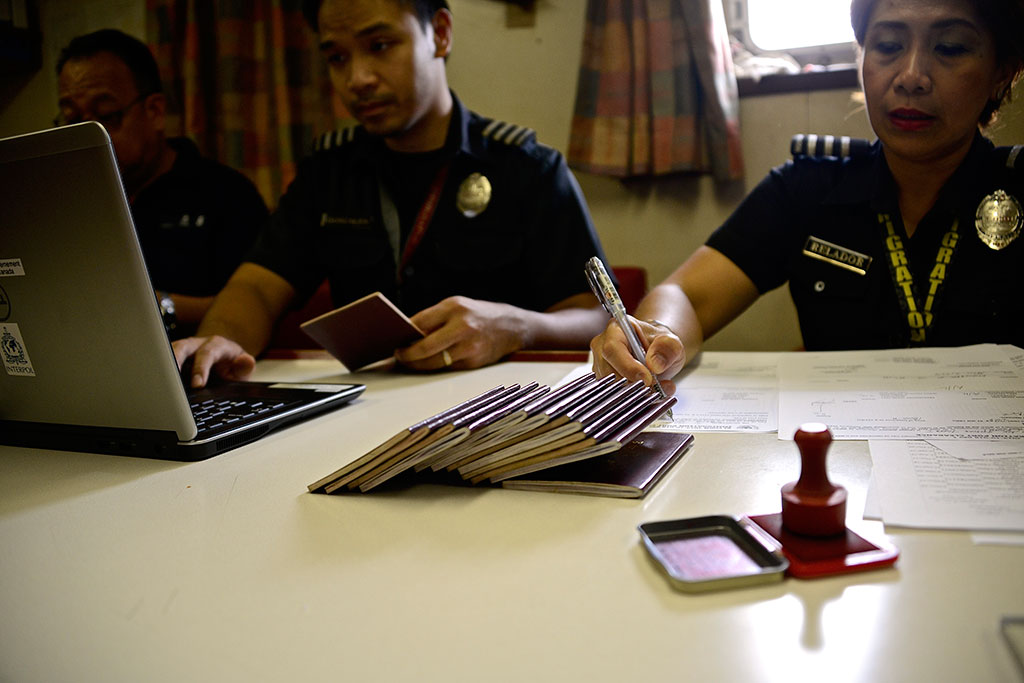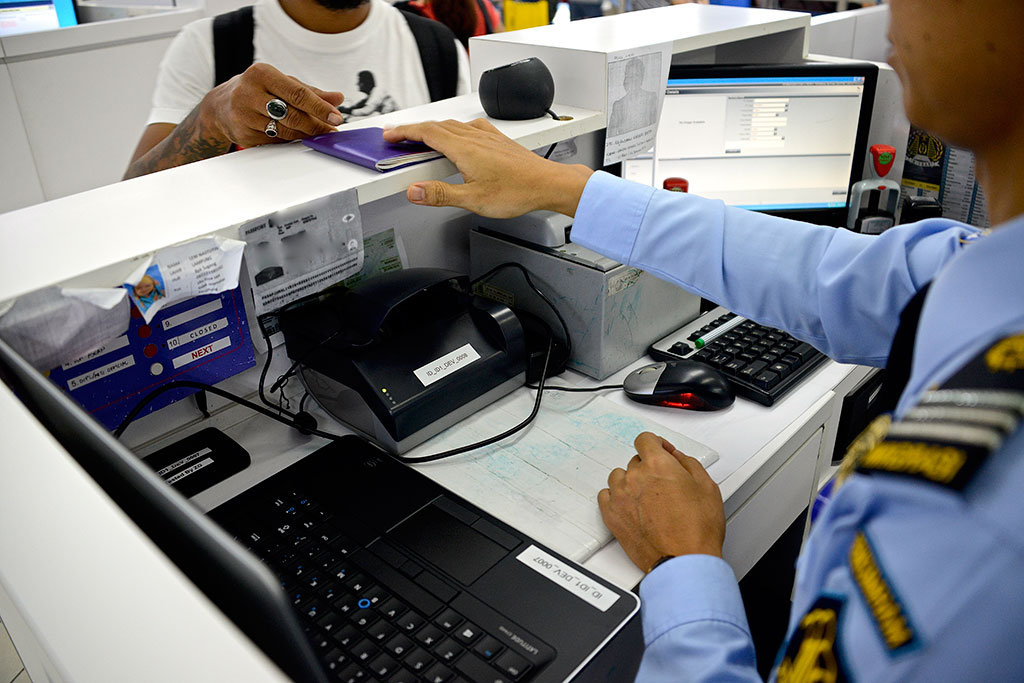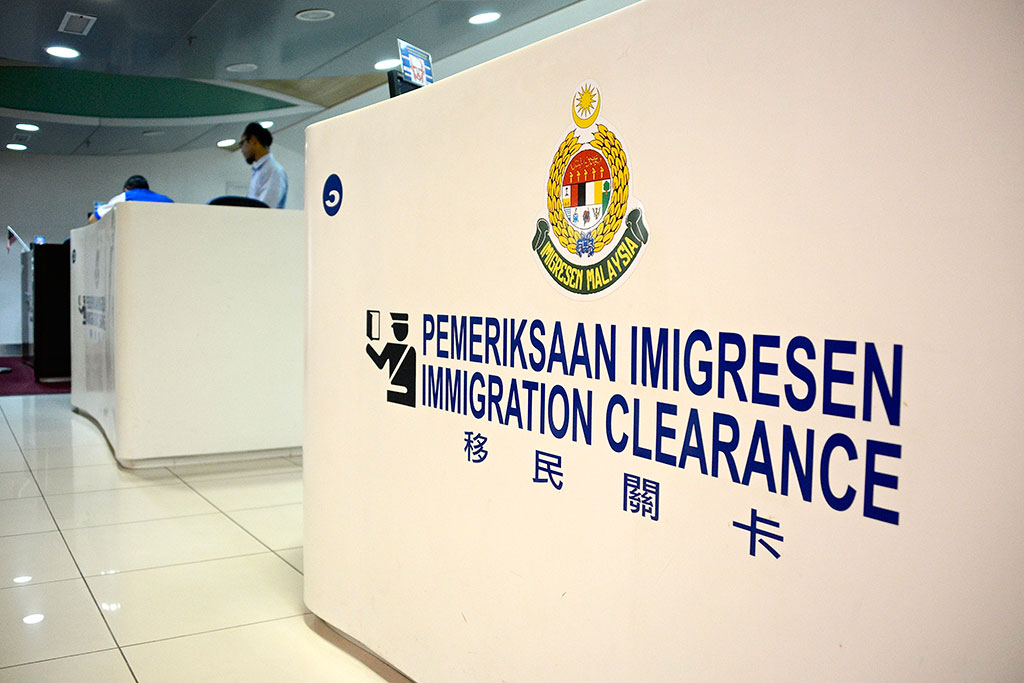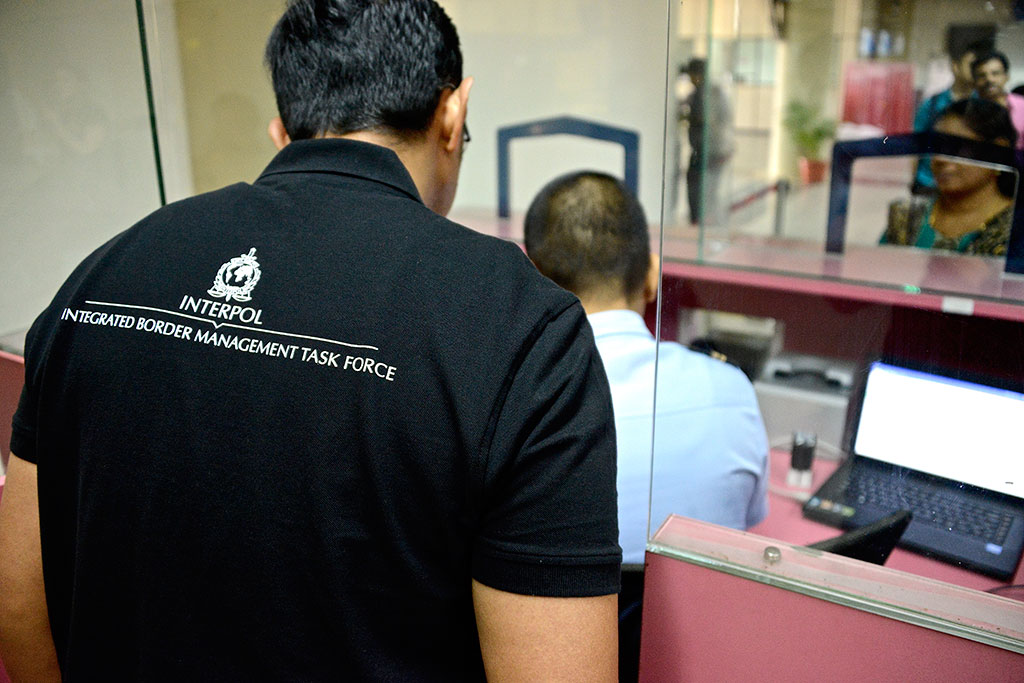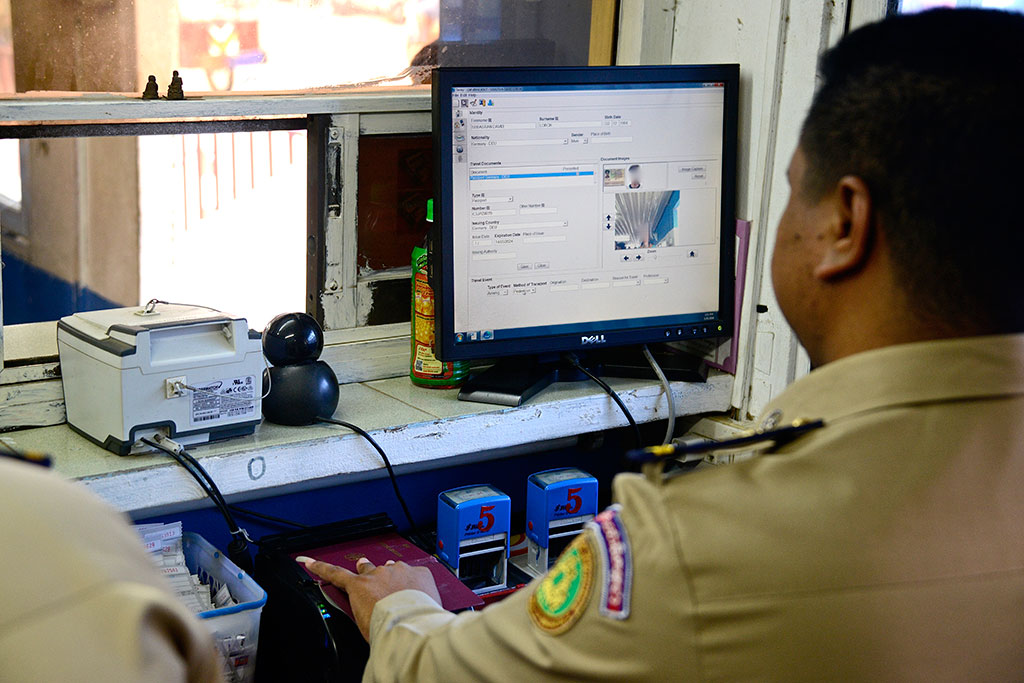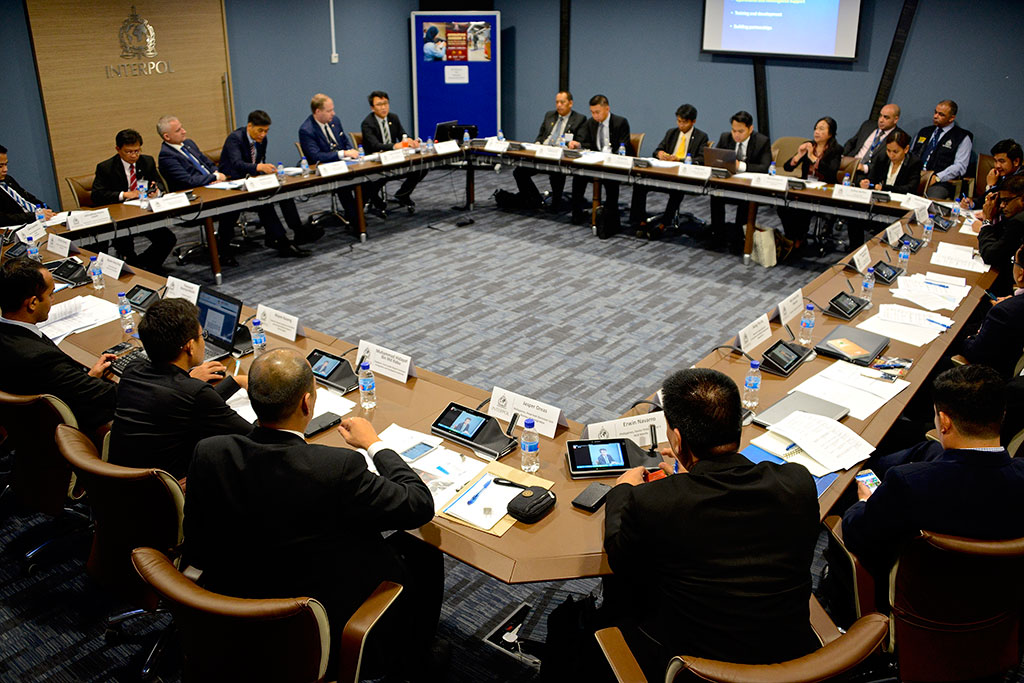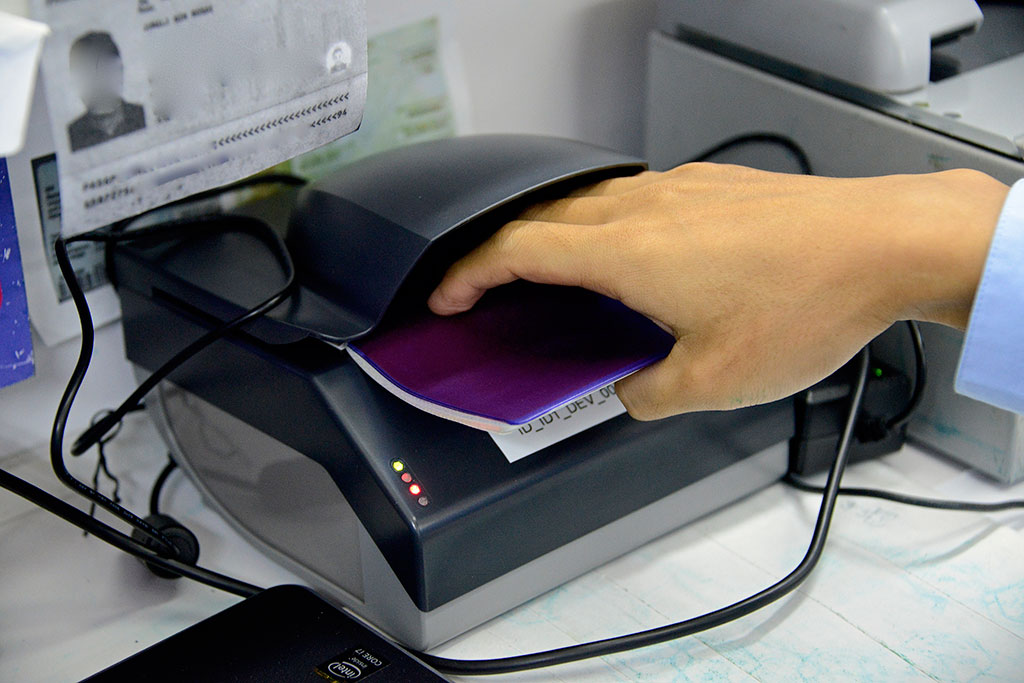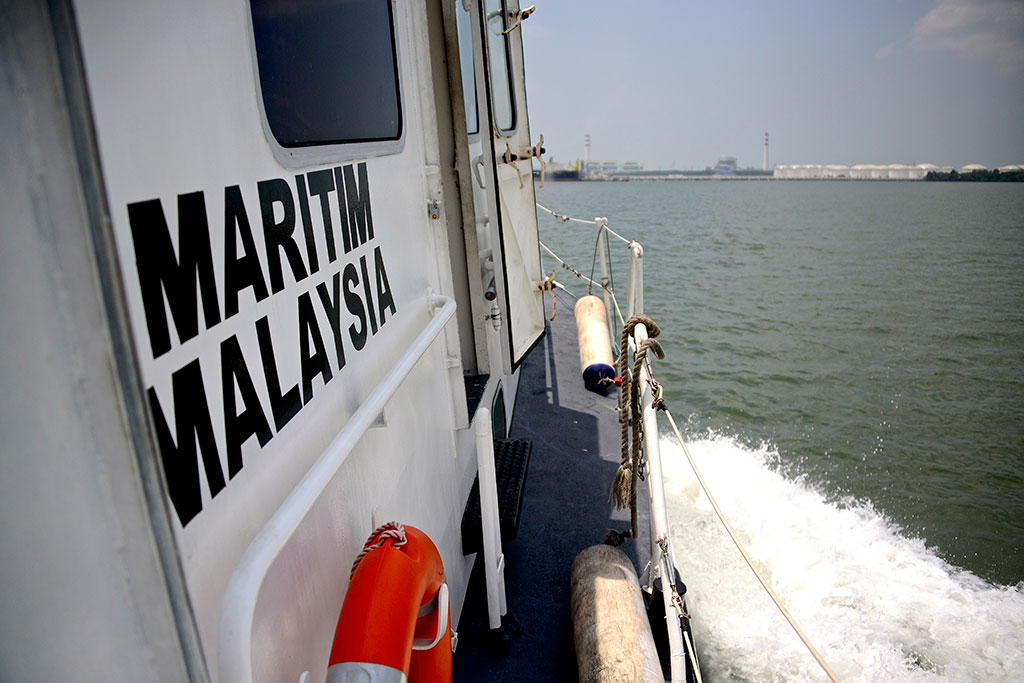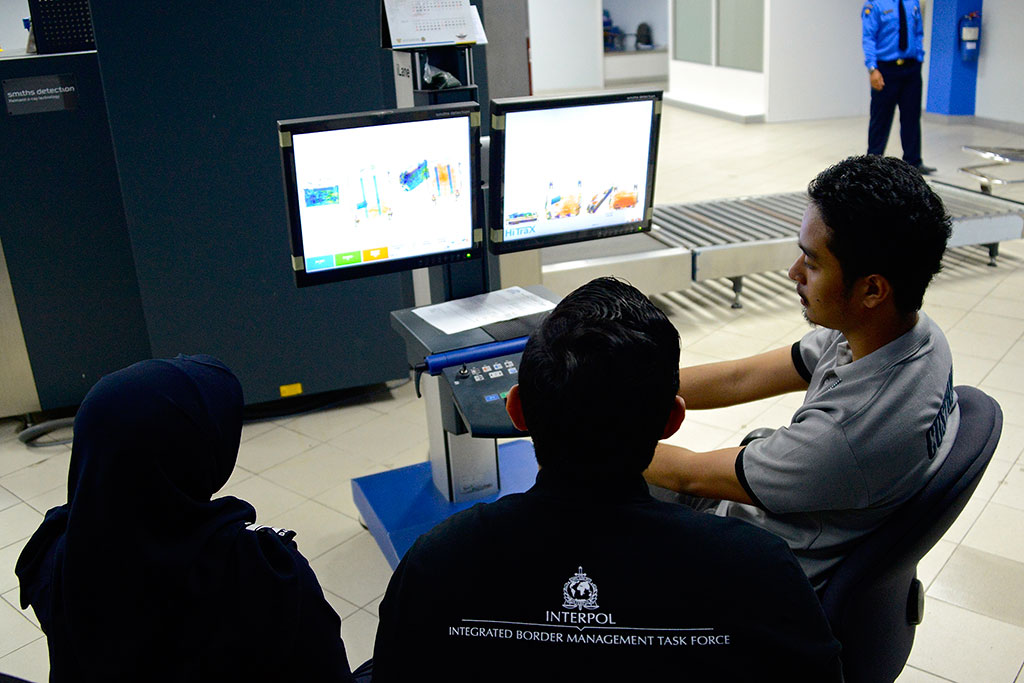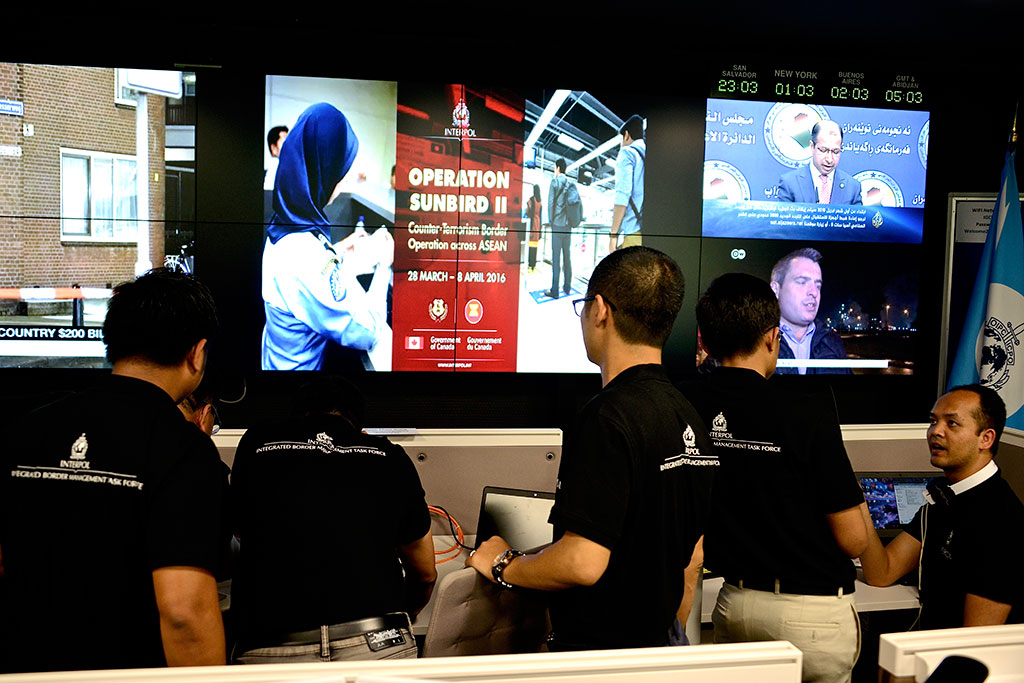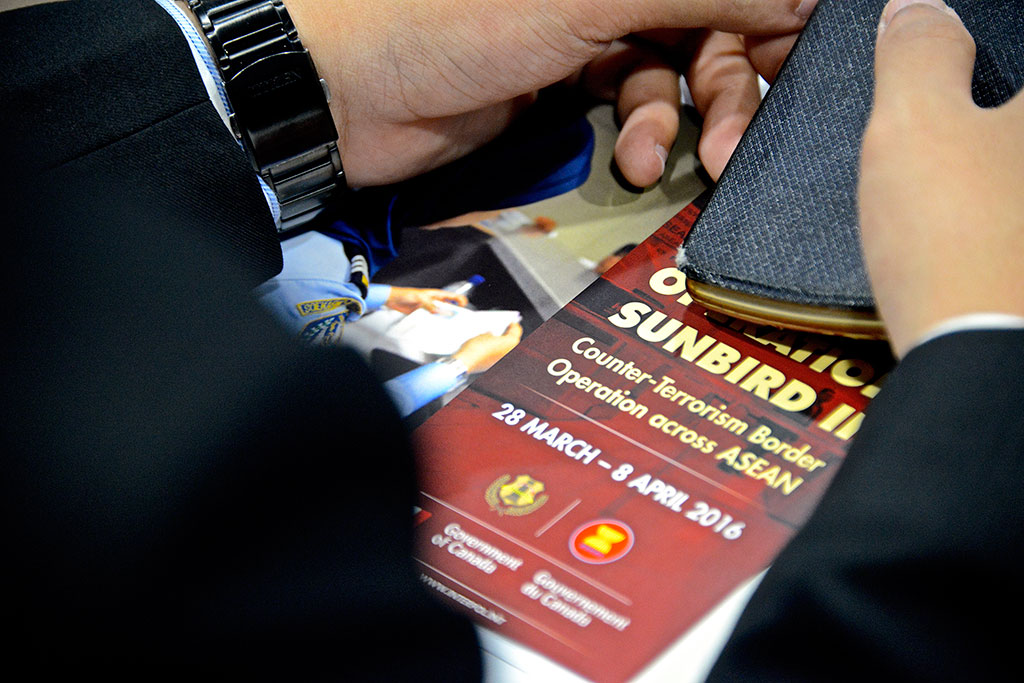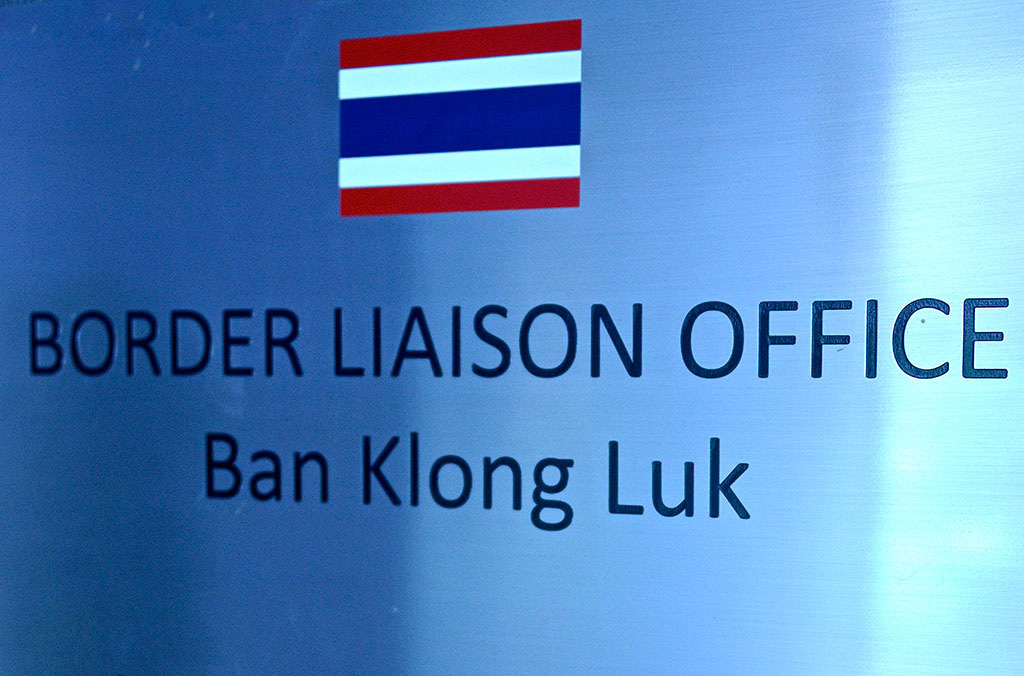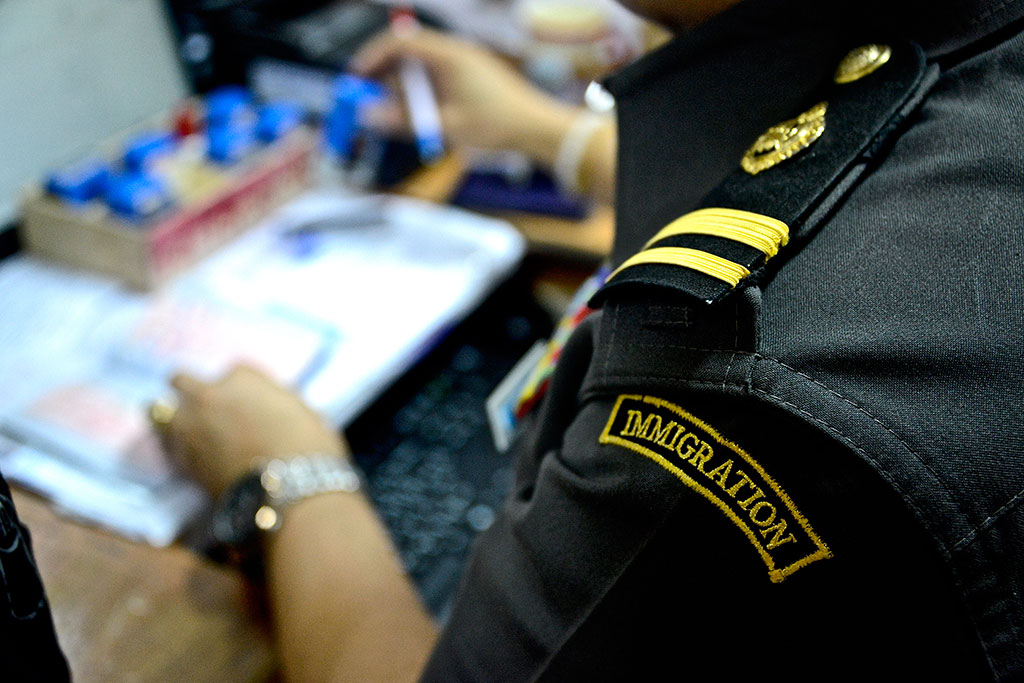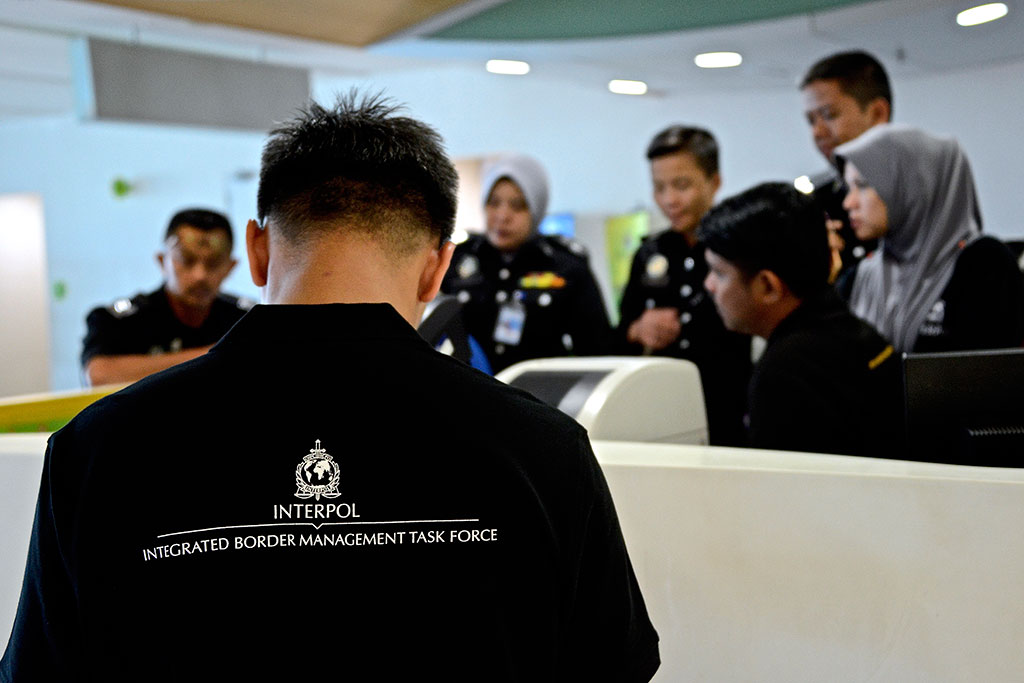SINGAPORE – Enhancing counter-terrorism and law enforcement collaboration was the focus of an INTERPOL-facilitated border operation which targeted international fugitives attempting to travel across Association of Southeast Asian Nations (ASEAN) countries.
During Operation Sunbird II (28 March - 8 April), which sought to identify wanted terror suspects and other criminals, police, immigration and maritime authorities in all 10 ASEAN countries screened passports at 30 land, air and sea border points against INTERPOL’s global databases.
Some five million searches were conducted during the operation, resulting in seven arrests and almost 100 ‘hits’ – including 71 on passports recorded in INTERPOL’s Stolen and Lost Travel Documents (SLTD) database.
Seven people who were internationally wanted were located, as well as two individuals targeted by United Nations Security Council sanctions and the subject of INTERPOL UN Special Notices who were also detected in the region.
As part of an INTERPOL’s Capacity Building and Training (CBT) programme funded by the Government of Canada, the operation was coordinated from the INTERPOL Global Complex of Innovation in Singapore under the umbrella of the INTERPOL Integrated Border Management Task Force in close cooperation with ASEAN countries and ASEANAPOL.
INTERPOL’s broad range of global policing capabilities supporting the operation included Police Data Management, Forensic Support, Criminal Analysis, Fugitive Investigative Support, its Command and Coordination Centre, as well as Capacity Building and Training.
Its Counter-Terrorism unit provided information and follow-up assistance on suspected foreign terrorist fighters traveling within and outside the Southeast Asian region towards conflict zones.
“The last few years have seen significant milestones in the INTERPOL and ASEANAPOL relations, notably in our cooperation on capacity building and training initiatives and on joint cross-border operations in addressing transnational crimes,” said Ferdinand Bartolome, ASEANAPOL’s Director of Police Services. “These developments underscore the enduring partnership between the two organizations, working together towards a common objective of ensuring peace and prosperity for all.”
Michael O’Connell, INTERPOL’s Director of Operational Support and Analysis, said: “Operation Sunbird II underlines how internal and international security depends on strong measures at border points to prevent dangerous individuals from travelling. In this respect fostering inter-agency cooperation between all relevant law enforcement agencies involved in border security on land and at sea throughout the region is crucial.”
“The Operation combined multiple INTERPOL Counter-Terrorism projects, including the one targeting UN Sanctions, and sought to maximize the use of INTERPOL policing capabilities for regional and interagency cooperation,” said Kiho Cha, Senior Political Affairs Officer with the UN Security Council Subsidiary Organs Branch.
“The cooperation between INTERPOL and the UN has already proven its efficiency and added value for the sake of global peace and security. Its future and continuity require the active participation of member states and the exchange of information between INTERPOL National Central Bureaus its Special Representative to the UN and the relevant UN sanctions committees,” added Mr Cha.
With the operation representing the culmination of skills and knowledge developed during a series of capacity building activities for law enforcement in the region since May 2015, INTERPOL’s Director of Capacity Building and Training Julia Viedma said: “By bringing together actors across the law enforcement community including key decision makers, investigators, forensic experts, immigration officers as well as NCBs, Operation Sunbird II shows the real operational value of capacity building and training to make a practical difference on the ground.”
Since 2013, the ASEAN Senior Officials Meeting on Transnational Crime (SOMTC) has consistently supported INTERPOL in the delivery of capacity building programmes within Southeast Asia.
“Through the continuation of our fruitful partnership it will be possible to undertake new joint initiatives to combat terrorism, cybercrime, piracy and other types of organized crime taking place within the region,” said Sieng Lapresse, Government Advisor, Ministry of Interior of Cambodia and the current Chair of SOMTC.
Partner agencies included the INTERPOL National Central Bureaus in ASEAN member countries, law enforcement agencies in ASEAN member states including immigration, police and maritime authorities, ASEANAPOL and the Royal Canadian Mounted Police.
The 10 ASEAN countries are Brunei, Cambodia, Indonesia, Laos, Malaysia, Myanmar, Philippines, Singapore, Thailand and Vietnam.




